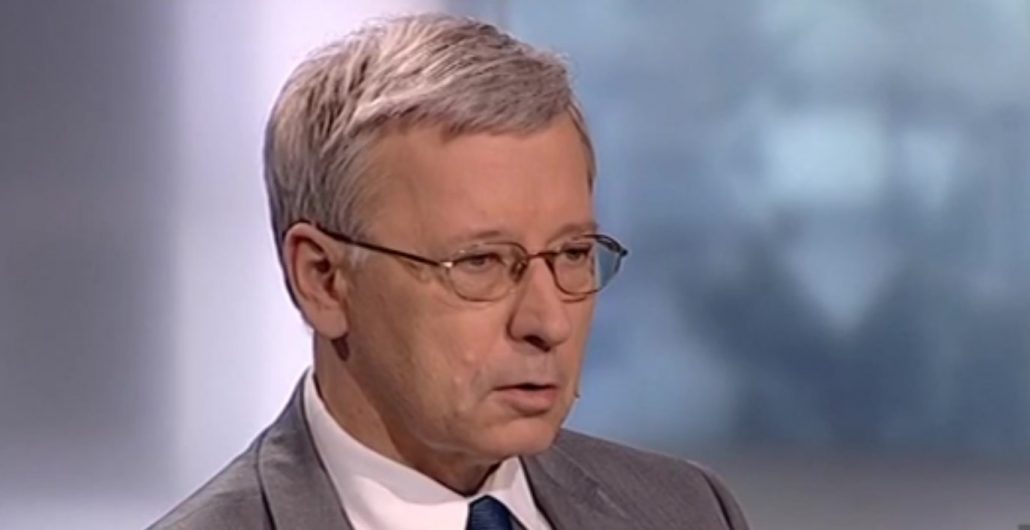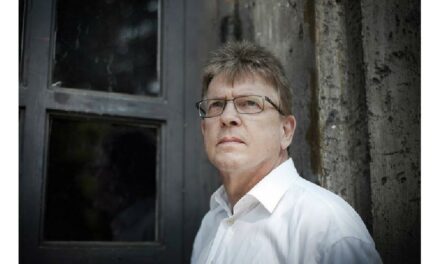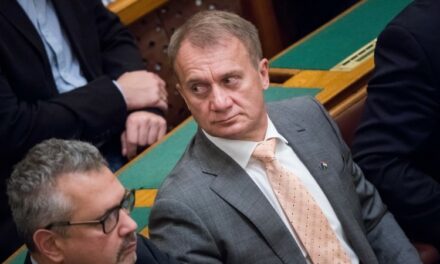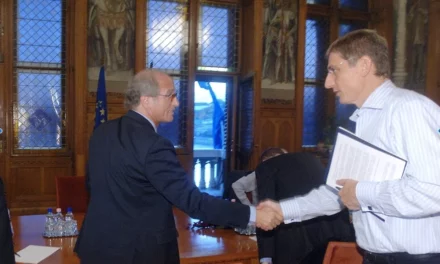In the interview, the former Polish Minister of National Defense also talked about the stakes of the current elections, the Volhynia massacre, József Antall and the Polish-Hungarian friendship.
Poland will vote on October 15. What is at stake in the current election?
Both in Poland and outside, there is a belief that the significance of the current elections goes far beyond Warsaw. It is no secret that the Polish government has a completely different vision of governance than the European Parliament and the European Commission.
It is not only about the future of the European Union, but also about the future of Poland and the countries on the eastern edge of NATO.
We have a very different diagnosis of Europe's security than France or Germany. We believe that Russia is a threat to Europe, and therefore also to Poland. For years, Brussels believed that Russia was a normal, well-intentioned, cooperative country. When Russia attacked Ukraine, it became clear that European states could not help Ukraine fight. It turned out that without the help of the United States, Europe would actually be powerless against the Russian aggression in Ukraine. We in Poland are convinced that Europe is too weak against the imperialist aggression of Russia. In a word, Europe is on a forced path, it has to cooperate with the Americans, otherwise it cannot defend itself. In these two respects, the Polish government differs strongly from the ideas of the German or French government. These two areas are at stake: the future of the Union and the relationship with the United States. Added to this are the differences of opinion on migration.
If the current government retains power, we will be a thorn in the side of the EU, we will hinder Europe in the process of imperialization.
And of course, this also means that the relationship with the United States will continue to strengthen. As the largest country on the eastern edge of NATO, we have a lot of say in this Europe. Therefore, the government is doing everything to ensure that both the country and the army are strong.
Poland's undisclosed goal is to create the largest army in the region. They supplied weapons to Ukraine until the outbreak of the Ukrainian grain scandal, when they announced that no more weapons would be supplied. Then there were rumors that Poland had run out of weapons. Meanwhile, the war in Ukraine is still raging, and according to some experts, a wave of migration is expected from the Middle East in connection with the events in Israel. How will Poland have the largest army in the region?
A strong army can only exist if the economy is strong. Political will is not enough for this. If the European Commission were to think soberly and pragmatically, it would not block RRF funds from Poland. The sources should have been released immediately a few days after the Russian attack. This has not been done since, despite the fact that the war has been going on for two years. This means that no one in the European Commission understands the Russian threat and the security policy problem. As for the grain issue, the EU's failure to extend the embargo in September is quite simply an attempt to interfere with the outcome of the Polish elections. It appears from the statements of Ukrainian politicians that they are convinced that they can save their own independence if they join the Union and NATO as soon as possible.
It's just that neither the European Union states nor NATO have any serious intention to include Ukraine. It is promised to Ukraine, but no one says when it will happen.
As for the events in the Middle East, it seems that both Iran and Russia actively contributed to the launch of the Hamas attack. Of course, the Israeli attack on the Gaza Strip will induce a massive human exodus. It would be natural if these refugees were accepted by the neighboring countries, Syria, Jordan, and Egypt, and the costs of maintaining these refugees were borne by the richest Arab countries, Saudi Arabia and Qatar. Europe has neither the will nor the ability to accept millions more refugees.
In a background discussion, it was said that Polish society cannot now be grasped with economic programs, but with the given party's answer to whether they can heat in the winter and what will happen on the border with Belarus. Poland has become a security-focused society that acknowledges the inviolability of the border. Is this true?
There are 28 million citizens with the right to vote in Poland. Obviously, not everyone goes to vote. Let's say it openly: the majority of people are not that interested in politics, they don't live in it. The readership of newspapers is constantly falling. Not many people go online to read political news. The majority of people will vote guided by an argument/opinion system that has been entrenched for months. The number of people who decide who to vote for that day or just before the ballot box may be a few percent. These social, material, material things matter a lot to a lot of people. Minimum wage, minimum pension, social security. Since the war broke out in Ukraine, security issues have indeed become the most important.
I think that in the current campaign, when a lot of long, thorough arguments were made, people who are not really interested in politics stuck rather to four very short messages: Donald Tusk received from Putin a few days after the Smolensk disaster a very valuable gift, a gilded vase, and a very high German award from Merkel. When US President Bush offered Poland a missile system, Tusk refused. During the TV debate, which took place a few days ago, Prime Minister Morawiecki recalled that during Tuské's time, the adjustment of pensions to inflation was minimal. Föl also quoted one such story, that he met a woman who told him that during Tusk's time, her annual valuation was two zlotys. There are now thirteenth and fourteenth monthly pensions. This lady gave Morawiecki two zlotys and told him to give them back when he met Tusk. Sometimes such gestures, like this vase, like the German medal, like the two zlotys, are much more effective than a long, elaborate argument.
As for the gestures. How much did it hurt the Poles that Ukraine did nothing worthwhile on the eightieth anniversary of the Volhynia massacre?
The memory of the Volhynia massacre is very strong in Poland. We believe that neither the previous nor the current Ukrainian government is behaving properly in this regard. It is an indisputable fact that during the Second World War, more than a hundred thousand civilians were murdered by Ukrainian nationalists armed by the Third Reich. The Poles helped the Ukrainian war refugees last year, but we did not forget the fact of the massacre.
Ordinary Ukrainian citizens often do not even know about this, since they are not taught this in school.
Ukrainian politicians, on the other hand, know this, and yet they are unable to provide a solution. Any country where some local force collaborated with Nazi Germany should be treated negatively. It must be condemned. But unfortunately, this was not the case with the UPA. This is not the only problem in the Polish-Ukrainian relationship, because the treatment of the Polish minority in Ukraine also falls short of European standards.
Just like the Hungarians.
Yes. Here, I am thinking about the schooling of the Polish minority and the limitation of their organizational possibilities, but I am also thinking of not returning to the Polish community the churches that were taken from them. We believe that if Ukraine does not condemn the phenomenon of the UPA, then it simply does not correspond to European standards, since Nazi crimes must be condemned. Today, Ukraine has a lot of wonderful, new heroes, it should not be based on the Bandera tradition at all.
Since the outbreak of the war in Ukraine, Polish-Hungarian relations have deteriorated. Now, as if the situation has started to improve a little. Can the protection of the Polish-Subcarpathian Hungarian minority in Ukraine be a unifying force between Poland and Hungary?
I have always been a supporter of cooperation within the Visegrad Group. I traveled to Budapest as a member of many delegations. When I was there for the first time, József Antall was still the museum director, and we, as a Polish government delegation, went directly to the museum director. I was also a member of a delegation hosted by Prime Minister Viktor Orbán several times.
I am aware that the foreign policy of Hungary is different from the foreign policy of Poland. But our states have many common interests.
The fact that we are located here, on the eastern ends, is an experience that connects us. The pressure exerted by the European Union on Hungary is also familiar to us, as we experience the same pressure. I am also convinced that the pressure coming from the Union towards Hungary is the result of the work of György Soros, who has been waging a personal war against Orbán for years.
György Soros's instructions are behind the EU's tough steps and moves regarding Hungary.
The situation is a little different in Poland, where the Commission implements instructions issued in Berlin. If the current government side wins here, the people of Brussels will have to ask themselves the geopolitical question, since it will be proven that both Hungary and Poland will remain permanently conservative governments. They have to realize that the policy of refusal and sucking in relation to Warsaw and Budapest simply doesn't work, they have to abandon it and switch to the policy of dialogue.
So is it expected that Polish-Hungarian, two good friends, will drink wine together again?
I don't think that has really changed. On the level of verbality, on the level of style, on the level of approach, maybe yes, but not in terms of content. There was no change in friendship.
As for the pro-Ukraine policy, the Poles may have gone a little overboard there.
Featured image: Kresy.pl













